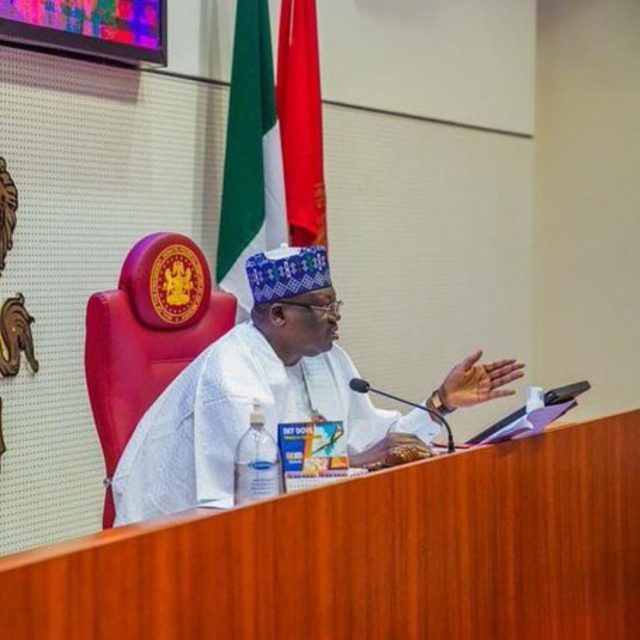
The Senate has urged the Central Bank of Nigeria (CBN) to urgently extend the date of withdrawal of old currency from circulation from 31st January to June 31st 2023.
This resolution of the Senate followed a motion sponsored at its plenary on Wednesday by a former Senate Leader, Senator Ali Ndume (APC, Borno South), titled: “Urgent Need to extend the Withdrawal of Old Currency from Circulation.”
Presenting the motion, Senator Ndume noted that the timing of the policy was wrong, adding that since the beginning of the implementation of the cash withdrawal limit, the new notes are not in circulation even in the cities, not to talk of the villages.
READ ALSO: “500m pieces of redesigned naira notes to be distributed nationwide” – CBN
“Many Nigerian banks, on Thursday 15th December 2022, open their vault to customers and depositors to exchange their old naira notes for the newly redesigned currency, which has a stipulated deadline of January 31, 2023;
Aware that some Nigerians are already envisaging rush and long queues in the banking hall across the country as a result of people trying to get access to the new naira note, which was unveiled last month by President Muhammadu Buhari at a brief ceremony at the State House, Abuja;
Aware also that the old notes are expected to be in circulation alongside the new ones until January 31, 2023, when the old notes are expected to be phased out, it is expected that many Nigerian businesses would start to reject the old notes as soon as the banks start paying out the redesigned notes to customers;
Observes that access to the new notes may be compounded by the recent circular by the CBN, which limit the amount of cash individuals and corporate entities could withdraw within a certain period of time. For instance, the CBN said individuals could only withdraw N100, 000 per week while corporate could only have access to N500, 000 per week through over-the-counter (OTC) transactions;
Observes that access to large quantities of cash above the limit would attract processing fees of 5% and 10% for individuals and corporate entities, respectively. Large withdrawals are also subjected to scrutiny by the regulator to determine the importance and usage of such cash,” Ndume stated.
READ ALSO: Naira Redesign: Rowdy session in Senate as Chamber okays policy
The lawmaker is convinced that if the withdrawal of old notes from circulation is not extended beyond 31st January 2023, many Nigerians will be thrown into hardship, adding that it would help to avoid a repeat of the 1984 experience of withdrawal of old notes.” Other Senators supported the motion, noting that the timing was not right.
Accordingly, the Senate adopted the single recommendation of the motion, urging the apex bank to pursue an extension.
READ ALSO: Naira Redesign: “Policy designed to distract Stamp Duty Probe” – Rep Kazaure




One comment
Aladeokomo Babatunde Sunday
December 29, 2022 at 1:52 pm
Well I feel the rate of confusion within this present government is more like a show of incompetence. It’s even abnormal if by this time bank POS are still been loaded with Naira notes that will no longer be legal tender again in about a months time. If banks can’t be shunning out new naira notes at this time then how effective is the purpose of redesign in the first place.
Further more, if the naira redesign is to catch up with those who have stockpile notes for the sake of the 2023 elections then extending the expiration time to June will make of no effect the purpose of the redesign.
Again, if the redesign is to also make useless the naira notes in the hands of Insurgents in their hide out and therefore helping Nigerians in the fight against terror then calling for a 6months extension will help the terrorist restrategize hence the purpose of redesign has amount to a waste.
Finally, the argument by the Senate leader looks more like taking the weakest way of making case for the rich and not in the general interest. If Senator Ndume wants to address issues of national poverty he should do something about fuel scarcity, Local Government autonomy, State policing, Restructuring, commodity price regulations and standardization, Judicial autonomy, High cost of governance, Police renumeration and reforms among many others. No one should use the present hardship caused by this same government to make case for his or her own selfish gain.